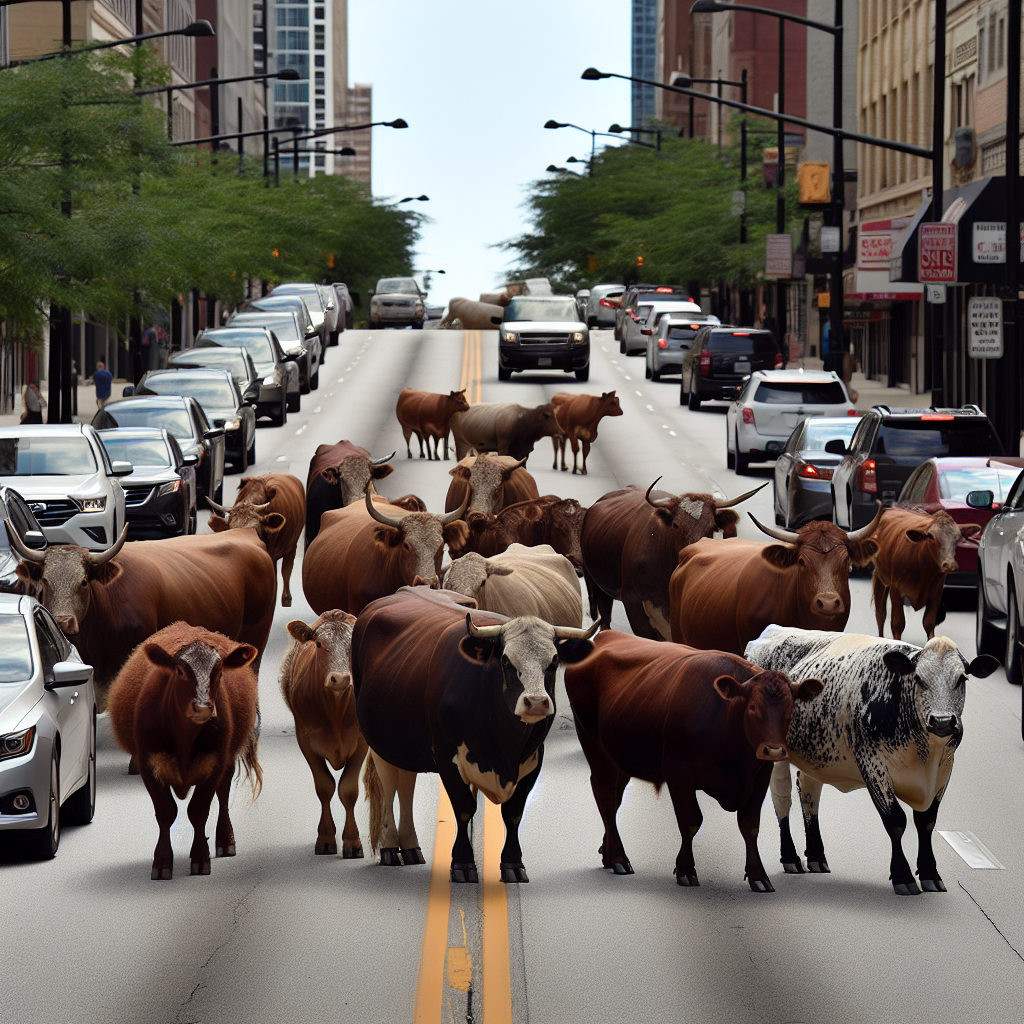August 28, 2024
The Struggle of Nigerian Cattle Herders Amid Urbanization and Climate Challenges
Book a Demo
The rapid modernization of Nigeria coupled with the adverse impacts of climate change is forcing cattle herders, a majority of whom belong to the Fulani ethnic group, to adapt to new landscapes and routines. These herders are finding themselves compelled to move their herds into city centers due to the loss of traditional grazing lands to desertification and urban development. This influx of cattle into urban areas is leading to traffic disruptions and a host of other issues, disrupting the usual rhythm of city life.
The rapid urban expansion and desertification have seen herders encroach on green spaces and private gardens within cities. This is a direct result of the Nigerian government’s unfulfilled promise to create fenced-off reserves for herders. The absence of these reserves has led to increased conflict and dissatisfaction among the herders who are struggling to find suitable pastures for their herds.
The president of the Miyetti Allah Cattle Breeders Association of Nigeria has voiced concerns over the government’s lack of support or incentives for the livestock industry. Despite Nigeria boasting the fourth largest cattle population in Africa, the country heavily relies on imported dairy due to inefficiencies in the local industry. This reliance further fuels the dissatisfaction and frustration among herders who feel that their potential is being overlooked.
Conflicts over land access between herders and farmers are often exacerbated due to overlapping religious and ethnic divisions. These disputes, unfortunately, often escalate into violent confrontations, causing further strain on the already tense relationship between these two important groups in the Nigerian agricultural sector.
To navigate the complex situation, some stakeholders propose the revival of city grazing reserves. They also suggest that herders should shift towards a more business-like model, involving the purchase of private land and feedstock. This, they argue, would provide more control and stability for the herders.
However, the herders demand the revival of designated grazing areas and yearn for government support comparable to what other businesses receive. This would not only acknowledge their crucial role in Nigeria’s economy but also provide them with the needed resources and infrastructure to thrive.
The plight of the herders in Nigeria is a complex issue that intertwines environmental changes, urbanization, ethnoreligious tensions, and government policy. It calls for an urgent, inclusive, and sustainable solution that respects the rights and needs of all parties involved.
Science4Data is committed to cut through greenwashing and measure real impact. Join the journey to a sustainable future. Your actions matter.



